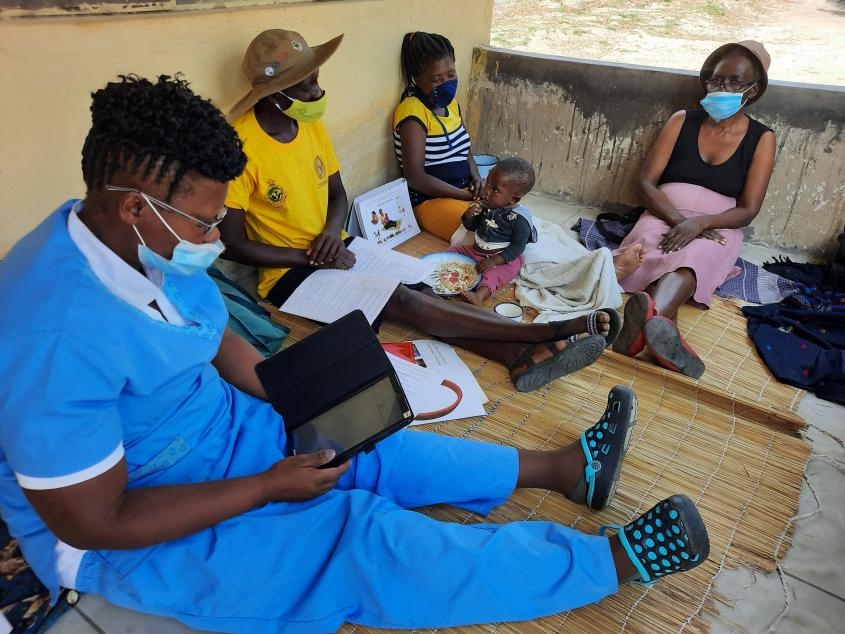$3.2M grant to study climate change’s impact on child malnutrition in Zimbabwe
A Cornell-led team has received a 3.2-million-dollar grant to study the effects of climate change on child malnutrition in Zimbabwe.
Laura Smith ’07, Ph.D. ’16, assistant professor in the Department of Public and Ecosystem Health, is project lead on the Wellcome Trust grant, and will examine climate change data from the past 10 years for associations with nutritional outcomes including food security, dietary diversity and child malnutrition. “It's quite a task because the data was not ever collected for doing longitudinal work,” said Smith. “But it's a real treasure of data."
With nearly a quarter of children in Africa under the age of five considered nutrient-starved, and the continent’s increase in severe weather, biodiversity loss and habitat destabilization, determining the impact of climate change on child malnutrition is more crucial than ever. Climate change can impact child health through direct pathways--such as increased heat contributing to dehydration--or indirect pathways, such as reduced crop yield, reduced parental care due to a higher demand to find food and water, or increased incidences of disease due to flooding.
In addition to analyzing the data, Smith is working with the Zimbabwean government to expand current surveys and plans to implement them over the next three years to understand how agricultural and child-feeding practices change under climate variability. These surveys gather data on climate change knowledge and experience, life stressors, dietary diversity and body size measurements.
As part of the grant project, researchers will conduct workshops to understand the local perspectives on the relationship between climate change and child malnutrition. With the survey and workshop results in hand, the team will then bring together lay agricultural workers and health workers to co-design approaches that integrate nutrition and agricultural practices.
Smith has a history of partnering with local organizations to create meaningful impact. Through her Ph.D. work, she developed close working partnerships with government entities in Zimbabwe, including the Ministry of Health and the Food Nutrition Council. She is also the associate director at Zvitambo Institute for Maternal and Child Health Research, a non-profit organization that has partnered with Cornell for over 20 years and will be the primary workforce behind this project. “I've always had a real passion for working on policy-relevant issues,” said Smith.
Smith plans to communicate the project’s findings to different levels of Zimbabwean government to help inform them as they re-evaluate their 2017 climate change policies. “It’s my 20-year vision that this work could help mold policy that counteracts the effects of climate change on child health in Zimbabwe,” said Smith.
Written by Megan Kellar






